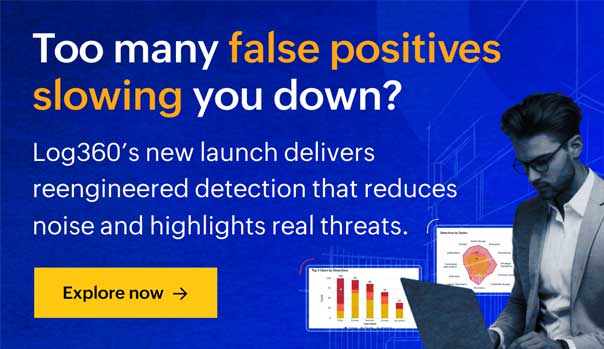As the digital space expands, organizations face cybersecurity challenges that range from sophisticated cyberattacks to complex regulatory requirements. Managed security service providers (MSSPs) address these challenges by offering a comprehensive suite of security services tailored to the unique needs of each client. Whether it's safeguarding sensitive data, ensuring continuous monitoring of digital assets, or responding swiftly to security incidents, MSSPs provide the essential tools and expertise needed to secure business environments effectively.
Let's look at the top use cases for MSSPs to position themselves in the market and for organizations to make informed decisions about partnering with an MSSP to enhance their security measures and mitigate risks in an increasingly volatile space.
How is an MSSP ideally positioned in the market?
MSSPs are staffed with security experts who possess specialized knowledge and skills in identifying, analyzing, and mitigating cyberthreats. This expertise allows them to offer tailored solutions that address the specific security needs and challenges faced by their clients.
And one of their major use cases is optimizing their security posture. With the comprehensive network monitoring that MSSPs provide, clients have clear visibility of the security posture, enabling them to identify and address security gaps, misconfigurations, and vulnerabilities proactively.
Beyond security concerns, MSSPs use network monitoring to optimize network performance by monitoring key metrics such as latency, packet loss, and throughput. This operational efficiency seems to be great value for the money that organizations put into MSSPs.
However, let's look at a the top five use cases of MSSPs that most benefit clients.
Some common use cases for MSSPs
- Ransomware defense and response
In 2023, ransomware attacks cost businesses over $1 billion globally—an all-time high. As these attacks grow in complexity, so does the necessity for advanced detection and response capabilities. MSSPs stand at the forefront of this battle, offering comprehensive ransomware defense mechanisms, including predictive analytics, threat intelligence, and incident response services. By leveraging the expertise of MSSPs, organizations can not only prevent ransomware attacks but also minimize downtime and data loss when attacks do occur.
- Compliance and governance
With the introduction of regulatory requirements like the GDPR in Europe and the CCPA in California, businesses worldwide are under immense pressure to comply with a myriad of data protection laws. MSSPs play a pivotal role in this scenario by offering compliance-as-a-service, which includes regular audits, compliance reporting, and risk assessment services. This not only ensures that businesses stay on the right side of the law but also builds trust with customers and stakeholders by demonstrating a commitment to data protection.
- Cloud security management
As of 2024, 85% of enterprises have adopted a multi-cloud strategy. However, managing security across diverse cloud environments poses significant challenges. MSSPs offer specialized cloud security services that encompass cloud access security brokers, secure web gateways, and cloud-based firewalls. By managing cloud security postures and enforcing consistent security policies across all cloud services, MSSPs enable businesses to leverage the power of the cloud without compromising on security.
- Threat intelligence and analytics
The digital threat landscape is dynamic, with new threats emerging at a breakneck pace. MSSPs offer dedicated threat intelligence services that provide deep insights into potential threats and vulnerabilities. Using machine learning algorithms with features like UEBA, these services can predict threats before they materialize, allowing organizations to proactively fortify their defenses. This predictive capability is crucial for maintaining a robust security posture in a world where traditional reactive approaches are no longer sufficient.
- Security information and event management (SIEM)
MSSPs leverage SIEM technologies to offer real-time monitoring, event log management, and incident response. These systems aggregate and analyze data from across an organization’s entire IT infrastructure, identifying suspicious activities and potential security threats. By providing comprehensive visibility into an organization’s security posture, MSSPs enable quicker detection of threats, faster response times, and overall improved security resilience.
Final thoughts
When use cases are clearly defined and communication of the benefits is unfront, both MSSPs and clients reap significant rewards. Furthermore, it empowers both parties to accurately estimate and determine the return on investment for the MSSP partnership.


